Abstract
A double-blind, randomized, dose-finding, phase II mefloquine trial was carried out in 147 adult male patients suffering from acute, uncomplicated, falciparum malaria and admitted to the Hospital for Tropical Diseases, Bangkok, between January 1980 and April 1981. Mefloquine was administered as a single oral dose of 500, 750, or 1000 mg (base) in the form of the hydrochloride. The clinical and parasitological responses were satisfactory with all three dosage regimens. The cure rates for the 1000-, 750-, and 500-mg doses were 100%, 92.5%, and 95% respectively, over an observation period of 63 days.
The side-effects, which were transient and generally mild, included nausea, vomiting, and diarrhoea. No significant changes were noted in haematological or biochemical parameters in any of the three groups. Sinus bradycardia, which started 4-7 days after drug administration and lasted for a few weeks, was seen in 10 patients. It was symptomless and needed no treatment.
Acute brain syndrome was observed in one patient on day 21 after receiving a 1000-mg dose of mefloquine.
Mefloquine was well tolerated in one case of acute renal failure, in 10 cases of moderately severe malaria with jaundice, in 13 cases with glucose-6-phosphate dehydrogenase deficiency, and in one case of thalassaemia.
Mefloquine showed no effect on either gametocytes of Plasmodium falciparum or tissue forms of P. vivax.
Mefloquine hydrochloride was found to be an effective drug for the treatment of falciparum malaria and tended to produce a more rapid clinical and parasitological response at the highest tested dose of 1000 mg (base).
Full text
PDF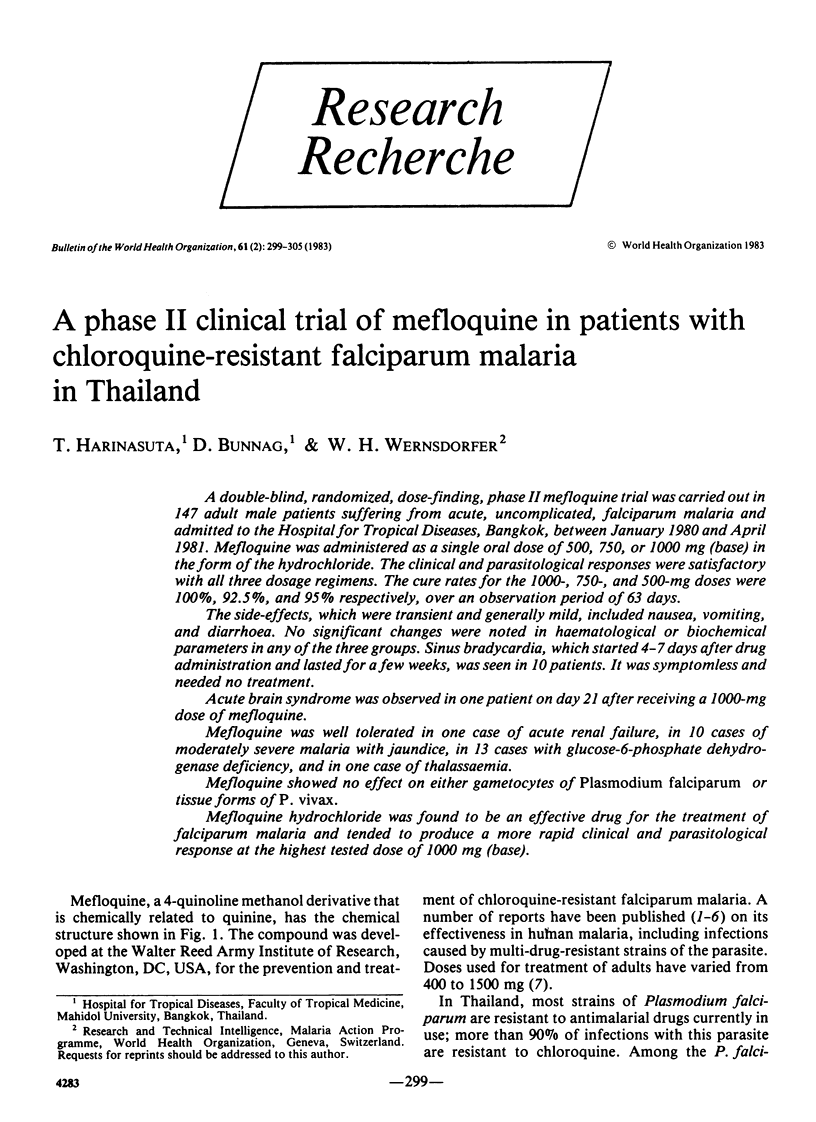
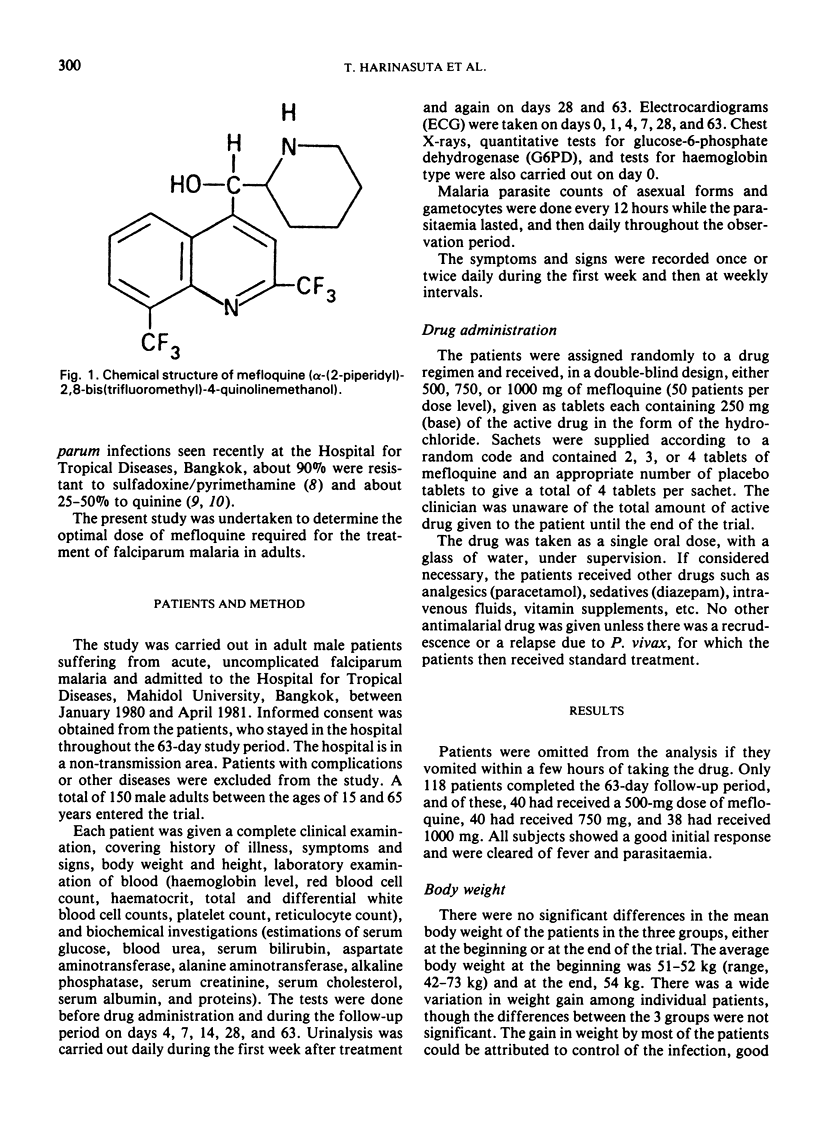
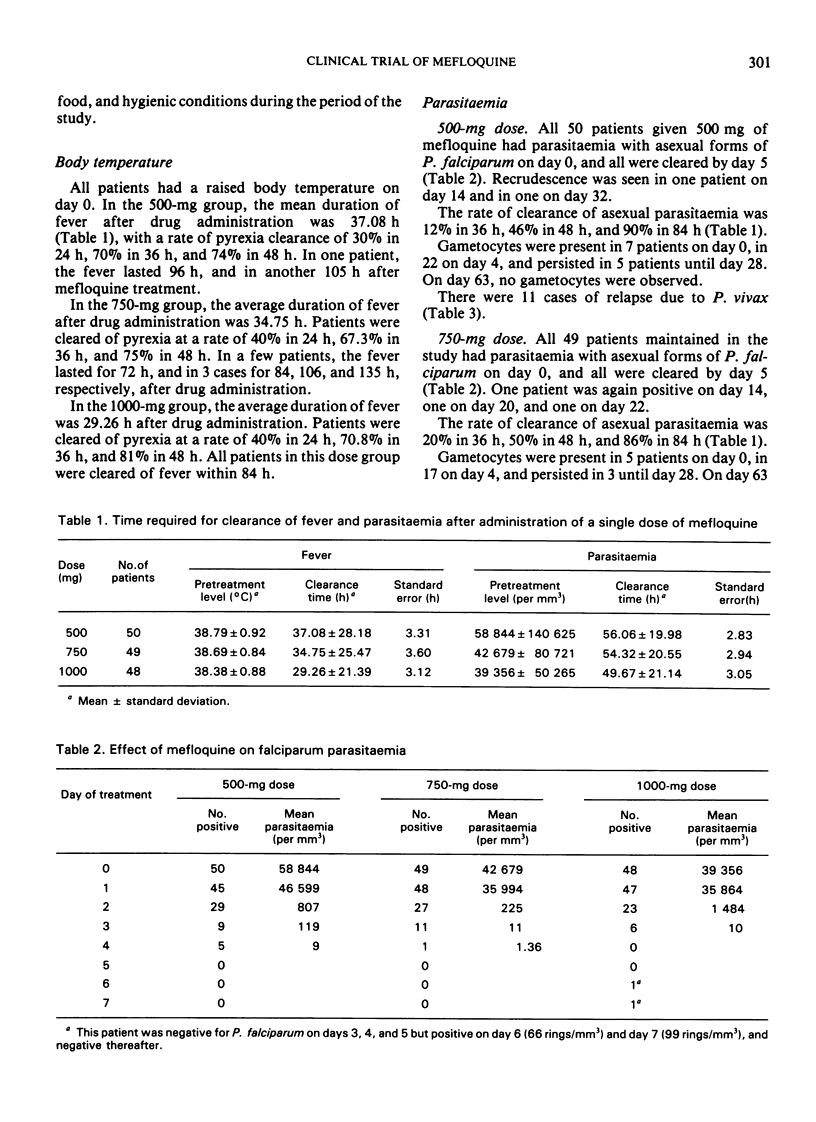
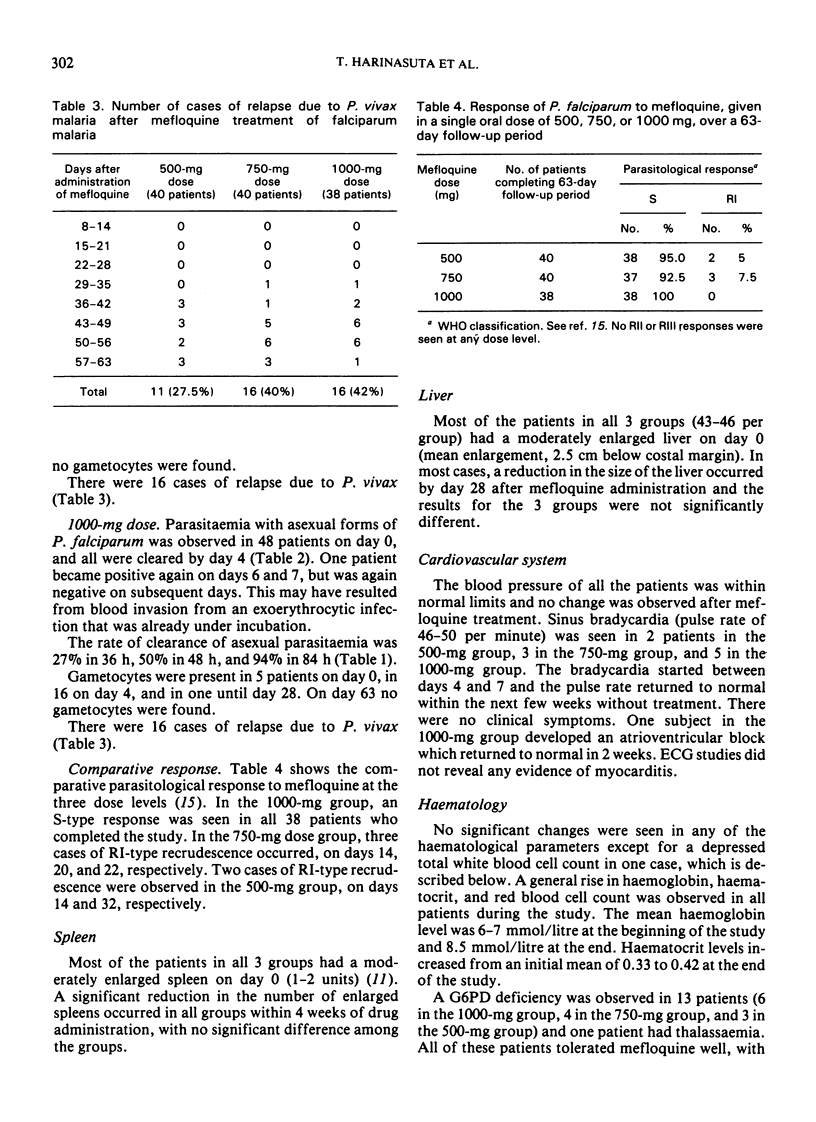
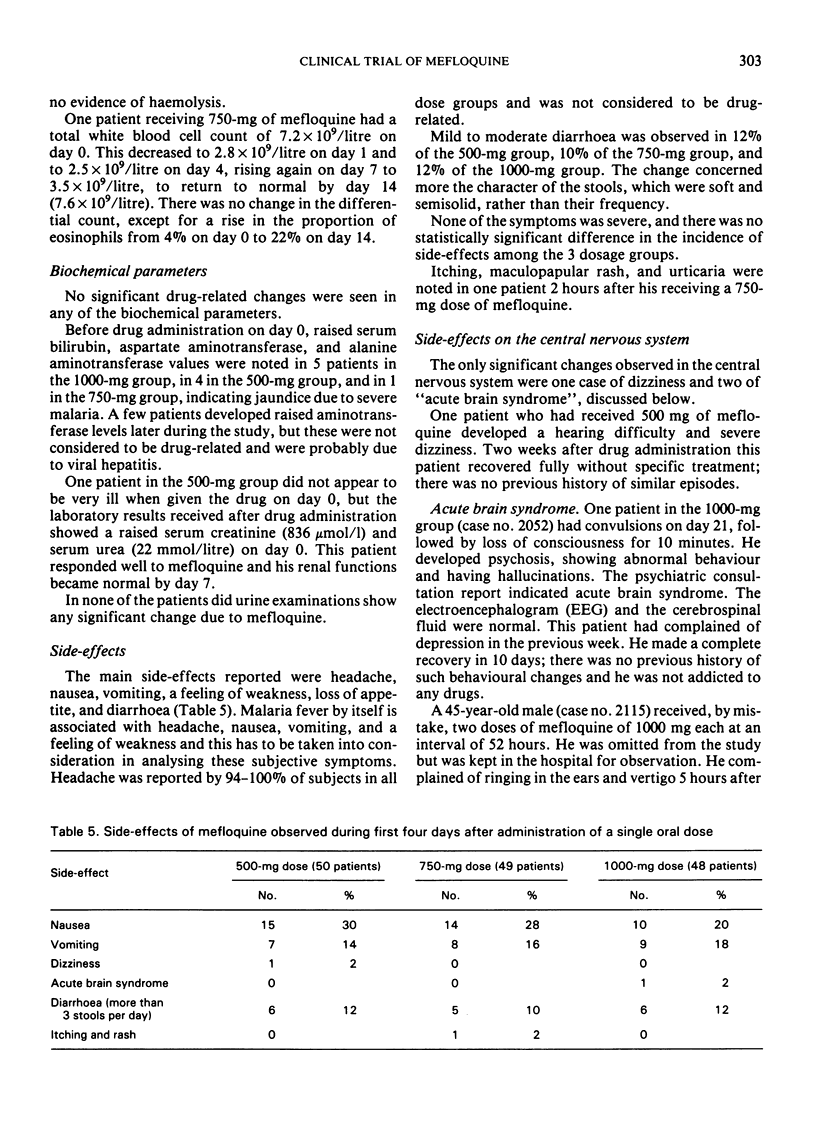
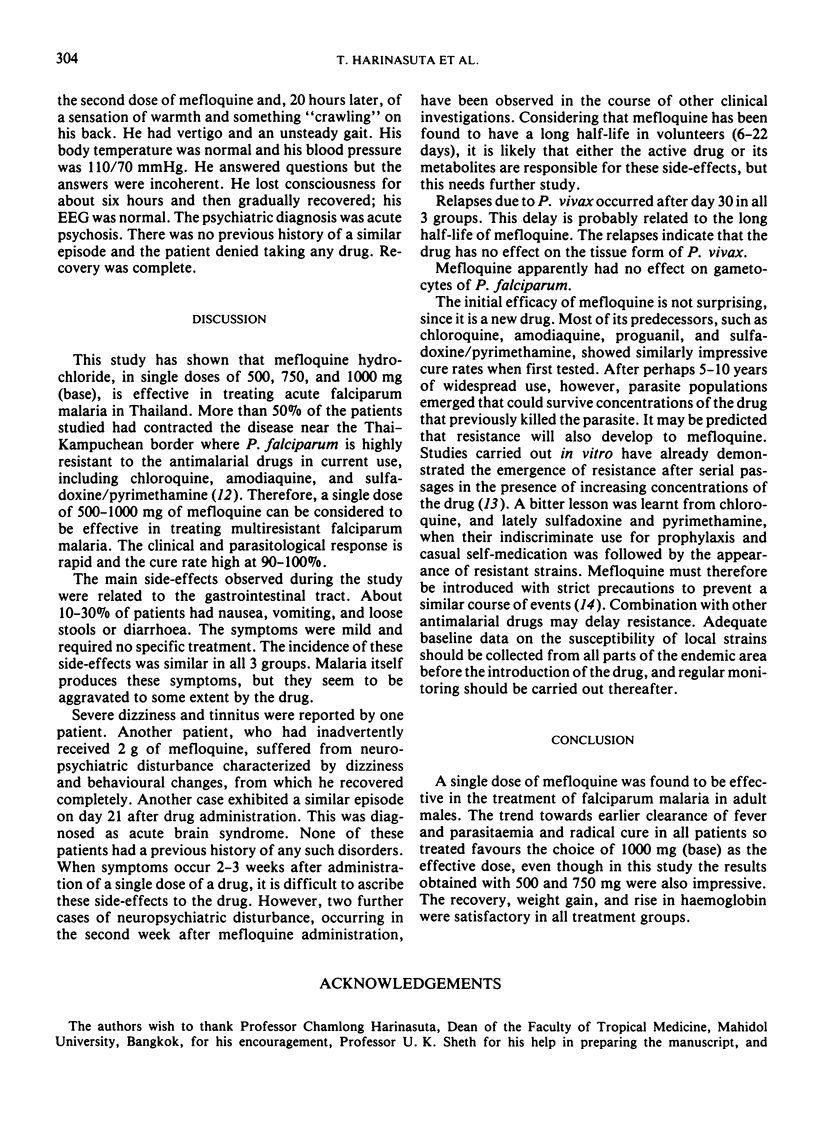
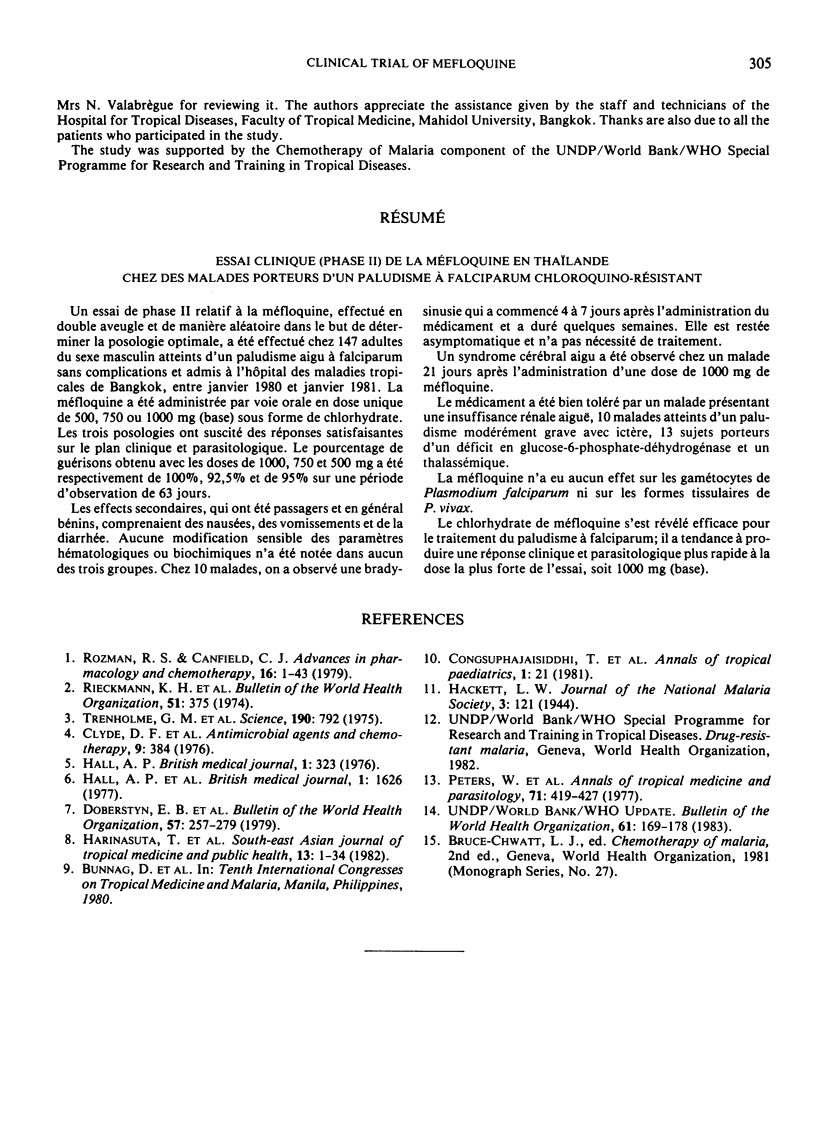
Selected References
These references are in PubMed. This may not be the complete list of references from this article.
- Clyde D. F., McCarthy V. C., Miller R. M., Hornick R. B. Suppressive activity of mefloquine in sporozoite-induced human malaria. Antimicrob Agents Chemother. 1976 Mar;9(3):384–386. doi: 10.1128/aac.9.3.384. [DOI] [PMC free article] [PubMed] [Google Scholar]
- Doberstyn E. B., Phintuyothin P., Noeypatimanondh S., Teerakiartkamjorn C. Single-dose therapy of falciparum malaria with mefloquine or pyrimethamine-sulfadoxine. Bull World Health Organ. 1979;57(2):275–279. [PMC free article] [PubMed] [Google Scholar]
- Harinasuta T., Dixon K. E., Warrell D. A., Doberstyn E. B. Recent advances in malaria with special reference to Southeast Asia. Southeast Asian J Trop Med Public Health. 1982 Mar;13(1):1–34. [PubMed] [Google Scholar]
- Rozman R. S., Canfield C. J. New experimental antimalarial drugs. Adv Pharmacol Chemother. 1979;16:1–43. doi: 10.1016/s1054-3589(08)60241-0. [DOI] [PubMed] [Google Scholar]


